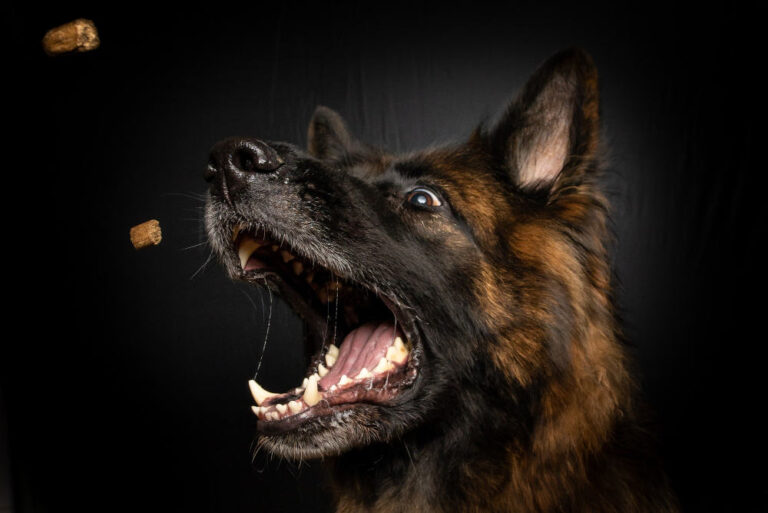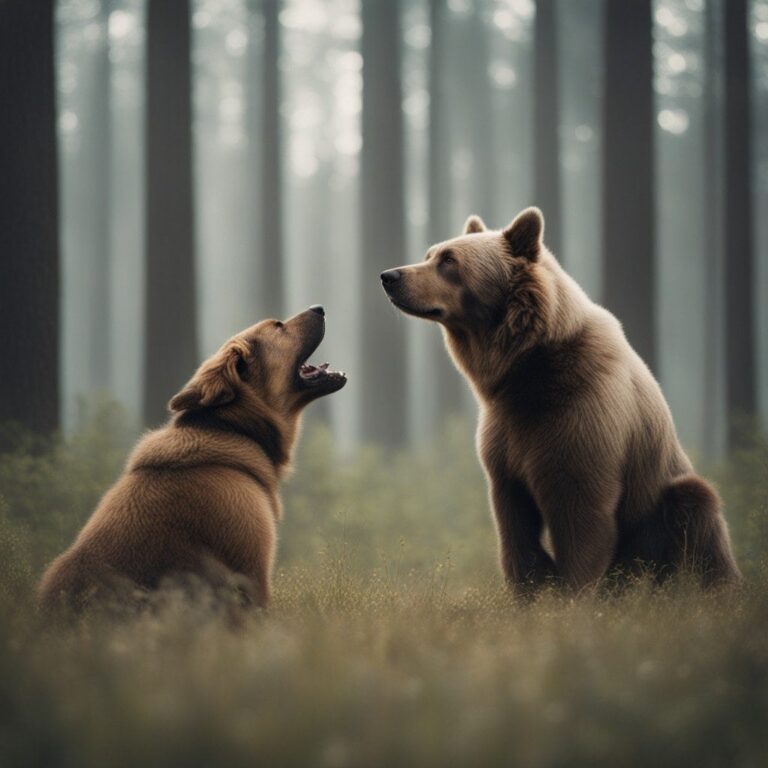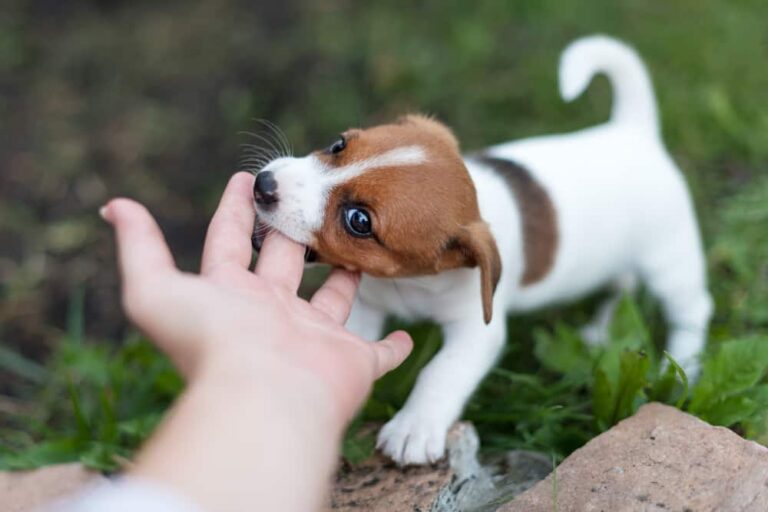Top 20 Non Aggressive Dog Breeds 2023

When it comes to choosing a dog breed, many people prefer non aggressive dog breeds that are known for their friendly and gentle nature. While every dog is an individual and behavior can vary, certain breeds are generally considered non-aggressive. These breeds are great with families, children, and other pets, making them popular choices for a calm and peaceful companion for households. Some examples of non aggressive dog breeds include the Golden Retriever, Labrador Retriever, Cavalier King Charles Spaniel, and Bichon Frise. It’s important to note that proper socialization and training are key factors in shaping a dog’s behavior, regardless of their breed.
Contents
- Understanding Dog Aggression
- Differentiating between Aggression and Playfulness
- Factors Contributing to Canine Aggression
- Top 20 Non Aggressive Dog Breeds
- Golden Retriever
- Labrador Retriever
- Bernese Mountain Dog
- Beagle
- Bulldog
- Brittany (Spaniel)
- Rough Collie
- Newfoundland
- Poodle
- Portuguese Water Dog
- Pug
- Greyhound
- Irish Setter
- Great Dane
- Vizsla
- Papillon
- Why are these Breeds Considered Non-Aggressive?
- What are some non aggressive dog breeds that are good with children?
- What Makes a Dog Non-Aggressive?
- Conclusion
Understanding Dog Aggression
Differentiating between playfulness and aggression is crucial in comprehending canine behavior. Several factors, such as genetics and environment, contribute to the development of aggression in dogs. Proper training and socialization are essential in preventing or managing aggressive behavior. Aggression is one of many ways of coping that dogs use, according to the RSPCA.
Taking aggression in dogs seriously and seeking professional intervention when needed is vital. Early recognition of aggression signs can help prevent potential incidents. By understanding the complexities of dog aggression, owners can create a safe and harmonious environment for their beloved pets.
Differentiating between Aggression and Playfulness
Understanding the difference between aggression and playfulness is crucial for dog owners. Wagging tails, relaxed body language, and invitations for interaction characterize playful behavior.
On the other hand, aggression involves growling, snarling, lunging, and biting. Context and body language are key factors in distinguishing between the two. If unsure, consulting a professional trainer or behaviorist can provide further guidance.
By understanding these distinctions, dog owners can ensure the well-being of their furry companions and maintain a safe and harmonious environment.
Factors Contributing to Canine Aggression
Genetic predisposition can impact a dog’s potential for aggression, making it crucial to understand a breed’s temperament before bringing them into a home. Proper socialization during a dog’s early development stages is key to preventing aggressive tendencies.
Traumatic experiences, such as abuse or neglect, can have long-lasting effects on a dog’s behavior and may contribute to aggression. Health issues like pain or hormonal imbalances can also manifest as aggression.
Environmental factors, such as a stressful household or inadequate exercise, can further contribute to dog aggression.
These factors can help owners create a safe and nurturing environment for their furry companions.
Top 20 Non Aggressive Dog Breeds
When it comes to choosing a dog breed that is known for its non-aggressive nature, there are several options to consider. Here are the top 20 non-aggressive dog breeds that can make great companions for families and individuals alike:
Golden Retriever
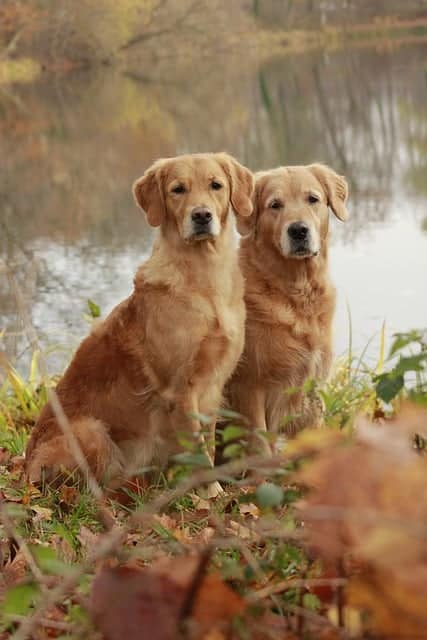
Golden Retrievers are renowned for their friendly, intelligent nature, calm, and gentle temperament. These adorable canines are highly trainable, making them ideal choices as family pets, service dogs, and even therapy dogs.
Golden Retrievers require regular exercise and mental stimulation to maintain their balanced behavior. Their outgoing and friendly nature makes them excellent companions for people of all ages.
Known for their loyalty and love towards their human owners, Golden Retrievers truly embody the qualities of an exceptional canine companion.
Labrador Retriever
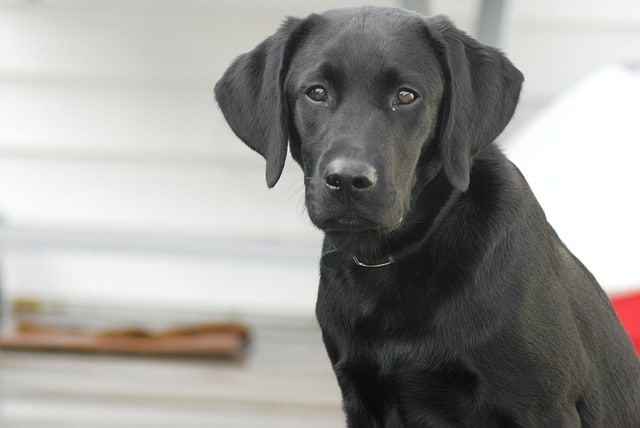
Labrador Retrievers are known for their friendly, outgoing nature and gentle, patient demeanor. Their high intelligence and trainability make them excellent working dogs in various fields.
Labs are not only great with children and other pets, but they also excel as family companions. Regular exercise and mental stimulation are essential for Labs to prevent behavioral issues, given their strong desire to please their owners.
Their non-aggressive temperament contributes to their popularity as guide dogs, therapy dogs, and beloved family members. Labs truly embody the qualities of an ideal non-aggressive dog breed.
Bernese Mountain Dog
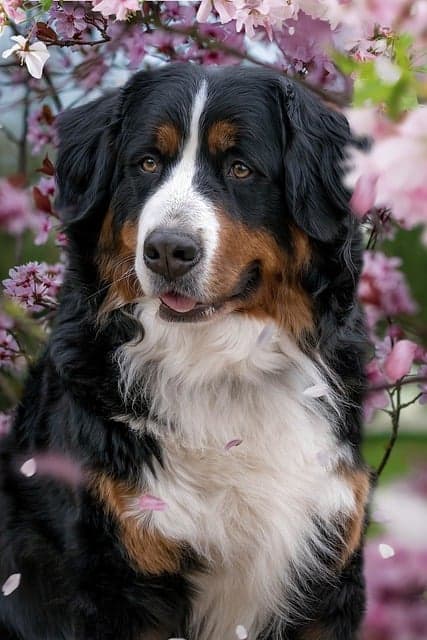
Bernese Mountain Dogs are beloved for their calm and gentle disposition, making them excellent family pets. They are known for their patience and compatibility with children and other animals.
Berners require moderate exercise and enjoy participating in various activities with their owners. Their loyalty and protective nature further contribute to their appeal as non-aggressive breeds.
Training and socialization from an early age play a vital role in shaping their well-rounded temperament. With their kind, shaggy coats, large eyes, and Swiss Alps heritage, Bernese Mountain Dogs truly make wonderful family dogs.
Beagle

Beagles are beloved for their friendly and sociable nature. They thrive on regular exercise, both mentally and physically, to keep them happy. When properly trained, Beagles are great with children and other animals, making them an ideal choice for families.
Known for their keen sense of smell, Beagles make excellent trackers. Their gentle and affectionate personality has made them a popular breed among dog lovers. Weekly grooming and early socialization contribute to their overall well-being.
With their large eyes, kind, shaggy coat, and high energy, Beagles are wonderful family dogs that bring great joy and love into the home.
Bulldog
Known for their calm disposition and friendly nature, Bulldogs are excellent family pets. Often referred to as “nanny dogs,” they are not aggressive and have a protective instinct towards children. Bulldogs require minimal exercise, making them suitable for apartments or homes with limited space.
Their distinctive facial features and unique charm make them beloved companions. Bulldogs are part of the least aggressive dog breeds known for their loyalty and devotion. With proper early socialization and positive reinforcement, Bulldogs can thrive as well-rounded family members.
Brittany (Spaniel)
Brittany Spaniels, beloved humans with their kind shaggy coats and large eyes, are highly intelligent and easy to train. Their friendly and gentle nature makes them excellent family dogs, especially for homes with small children. Brittany Spaniels require regular mental stimulation and much exercise to keep them happy and healthy.
They form strong bonds with their owners and are always ready for outdoor adventures like hiking and swimming. With their high intelligence and positive reinforcement, Brittany Spaniels is an ideal choice for those seeking a non-aggressive dog breed that is both loyal and fun-loving.
Rough Collie
Rough Collies are well-known for their friendly and gentle nature, making them an ideal choice for families with small children. Often referred to as “Lassie dogs,” Rough Collies have a strong sense of loyalty and are excellent with kids. To maintain their beautiful coat, regular weekly grooming is necessary.
These intelligent dogs excel in various activities and sports, such as agility and obedience training. Originating from Great Britain, Rough Collies have been beloved companions for centuries.
Their large eyes and kind shaggy coat make them a favorite among many dog lovers. With the right care, early socialization, and positive reinforcement, Rough Collies can be wonderful family pets.
Newfoundland
Newfoundlands are beloved for their calm and patient temperament, making them an ideal choice for families with small children. These gentle giants have a strong instinct to rescue and are excellent swimmers, which is why they make great guide dogs and are often used in water rescues.
Their thick double coat requires weekly grooming to keep it healthy and tangle-free. Newfoundlands are highly trainable and highly intelligent, making them excellent therapy dogs. They are known for their friendly and gentle nature, quickly becoming a cherished family member.
Poodle
Poodles are highly intelligent and easily trainable, making them an ideal choice for families. They have a hypoallergenic coat, which is great for people with allergies. Regular grooming is necessary to maintain their elegant appearance.
Poodles come in different sizes including standard, miniature, and toy, so there’s a perfect size for every family. With their friendly and playful personality, they get along well with children and other pets. Poodles are wonderful family dogs and can be excellent guide or police dogs. They were originally bred in Germany but gained popularity in Great Britain in the nineteenth century.
Portuguese Water Dog
Portuguese Water Dogs are beloved for their friendly and energetic nature, making them an excellent choice for families. They form strong bonds with their owners and are highly loyal. Fishermen traditionally used these intelligent dogs due to their excellent swimming abilities.
Portuguese Water Dogs require regular exercise and mental stimulation to keep them happy and healthy. Their hypoallergenic, curly coat requires weekly grooming. With their kind shaggy coats and large eyes, Portuguese Water Dogs are known for being gentle and patient, making them wonderful family dogs. They are also highly trainable and can serve as guide dogs or even work as police dogs.
Pug
Pugs are beloved for their friendly and affectionate nature, making them excellent family pets. With their distinctive facial features and large eyes, they have an expressive and endearing appearance.
Pugs are not aggressive and are known to get along well with children and other pets, earning them the reputation of being great companions.
Their laid-back personality means they are content with moderate exercise, making them suitable for families with different activity levels. However, it’s important to note that pugs are prone to respiratory issues, so proper care and monitoring are essential for their well-being.
Greyhound
Greyhounds are popular for their gentle and calm nature, making them an ideal choice for families. They are known to be affectionate with their family members and make great companions. In addition to their loving temperament, Greyhounds are famous for their lightning speed, which is why they are often used in racing.
Due to their sleek and slender build, Greyhounds require regular exercise to stay fit and healthy. Their short coat is easy to maintain with weekly grooming sessions.
With their kind and shaggy coat, large eyes, and high intelligence, Greyhounds are excellent family dogs and can be trained easily with positive reinforcement techniques.
Irish Setter
Irish Setters are known for their friendly and outgoing personality. They make excellent companions and are great with children and other animals when properly socialized. One of the most striking features of Irish Setters is their beautiful red coat, which requires regular grooming to keep it looking its best.
These active dogs thrive on exercise and mental stimulation to prevent boredom. With their high intelligence, Irish settlers excel in various dog sports and activities. Their loyalty and trainability make them beloved members of the family.
When considering non-aggressive dog breeds, Irish Setters are an ideal choice.
Great Dane
The Great Dane is often called a “gentle giant” due to its sweet disposition and calm temperament. Despite their large size, these dogs are known for their docile nature. Great Danes are incredibly loyal and protective of their families, making them an ideal choice for those looking for a devoted companion.
While they require moderate exercise and regular grooming, they are generally low-maintenance. However, Great Danes may not be suitable for apartment living due to their size. With their kind and gentle demeanor, Great Danes can make wonderful family pets who will quickly become beloved family members.
Vizsla
Originating from Hungary, Vizslas are renowned for their affectionate and loyal nature. Their high energy levels require regular exercise and mental stimulation to thrive. These intelligent dogs are easily trainable, excelling in various activities such as hunting, agility, and therapy work.
Vizslas have a short, smooth coat that requires minimal grooming, making them low-maintenance in weekly grooming. They are also known for being great with children and other pets, making them an excellent choice for families seeking a non-aggressive breed. Their loving and playful disposition makes them beloved members of the family.
Papillon
Papillon is a small and friendly dog breed that thrives on human companionship. Notable for their distinctive butterfly-shaped ears and long, silky coat, Papillons are intelligent and easily trainable.
They have a moderate energy level, requiring daily exercise and mental stimulation to keep them happy and healthy. With an average 13-16 years lifespan, Papillons are generally healthy and have few genetic health problems.
Their friendly nature and high intelligence make them excellent companion dogs. Papillons are ideal choices for families, as they get along well with small children and new people. Weekly grooming helps maintain their beautiful coat.
Why are these Breeds Considered Non-Aggressive?
Non-aggressive dog breeds are known for their friendly and sociable nature. With a calm temperament, they display loyalty and affection towards humans and other animals.
These breeds lack strong prey drive or territorial behavior, reducing the chances of aggression. Proper training, socialization, and responsible ownership contribute to their non-aggressive demeanor.
What are some non aggressive dog breeds that are good with children?
Non-aggressive dog breeds that are good with children include Labrador Retrievers, Golden Retrievers, Beagles, Bulldogs, and Cavalier King Charles Spaniels. These breeds are known for their friendly and gentle nature, making them ideal companions for kids.
They have a natural affinity for children and often display patience and tolerance towards their playful antics. However, it’s important to note that individual temperament can vary within each breed, so it’s always advisable to spend time with a dog before bringing them into a home with children.
Additionally, proper training and socialization from an early age can help ensure that any dog is well-behaved and comfortable around children.
What Makes a Dog Non-Aggressive?
A non-aggressive dog is characterized by its friendly and sociable nature. These dogs are calm and show loyalty and affection towards humans and other animals. Their lack of strong prey drive or territorial behavior sets them apart from more aggressive breeds. Their gentle disposition makes them less likely to display aggression in various situations.
Proper training, socialization, and responsible ownership also play a crucial role in shaping a dog’s non-aggressive behavior. When dogs are trained using positive reinforcement, they learn to associate good behavior with rewards, fostering a peaceful demeanor. Socialization exposes them to different people , animals, and environments, helping them develop confidence and reducing the likelihood of fear-based aggression.
When selecting a dog for a family with children, it’s always recommended to consult with reputable breeders or rescue organizations who can guide suitable breeds known for their non-aggressive nature.
Conclusion
It is important to remember that aggression in dogs is a complex behavior influenced by various factors such as genetics, training, and socialization. While breed can play a role in determining certain tendencies, it does not guarantee a dog’s behavior.
The top 20 non-aggressive dog breeds listed here are known for their friendly and gentle nature, but individual dogs may still exhibit aggressive behavior if not properly trained or socialized. It is crucial to focus on responsible ownership, positive reinforcement training, and providing a loving and nurturing environment for any dog, regardless of its breed. Remember, every dog deserves a chance to be understood and loved.


